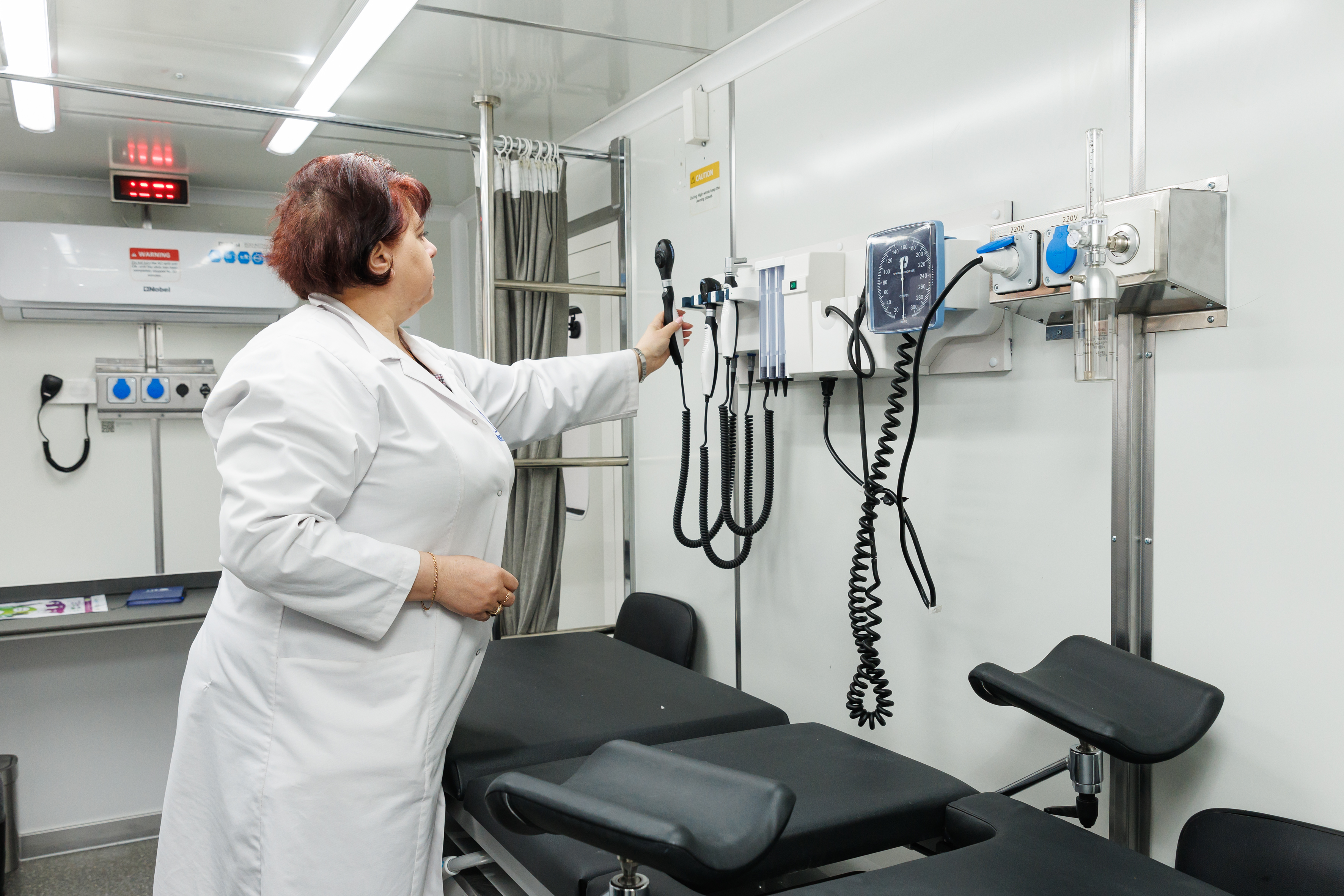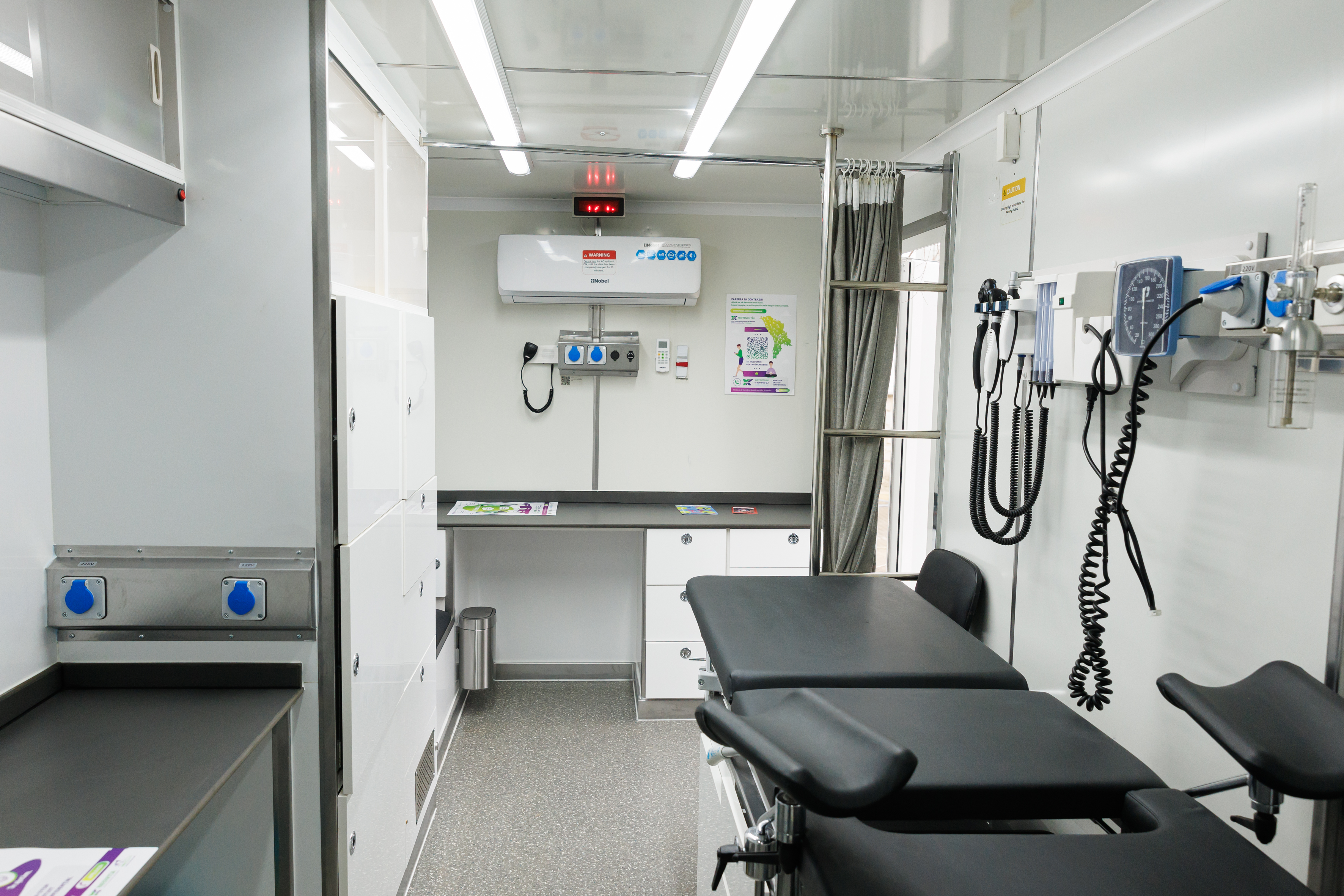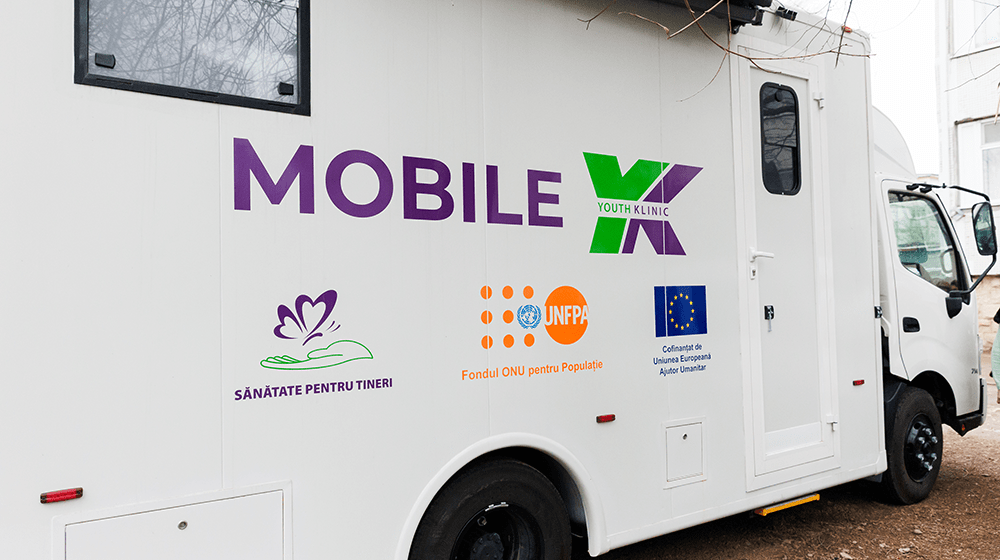The United Nations Population Fund (UNFPA), in partnership with the European Union, has launched a mobile health clinic to provide essential medical services to young people in the Cahul district. Operated by the “Health for Youth” Association and the Youth Klinic Network in the Republic of Moldova, the clinic aims to address healthcare barriers for adolescents and youth.
More than 27,000 young people in Cahul district, including Ukrainian refugees, now have access to free and confidential medical care, sexual and reproductive health counseling, and psychological support right in their own communities.
“UNFPA continues working with partners to extend access to sexual and reproductive health information, counselling, and services to all young people. This means creating an environment where these services are easily accessible to everyone, no matter where they live or their social circumstances. This mobile clinic represents a significant step in our efforts to bridge the gap in healthcare access for adolescents and youth, providing essential medical care and support where it is most needed," said Karina Nersesyan, UNFPA Resident Representative in the Republic of Moldova.
Equipped with state-of-the-art facilities, including examination space staffed by gynecologists and urologists, as well as areas for psychological counseling and rapid testing, the mobile clinic will provide confidential services for teenagers and young adults aged 10-35.

Equipped with state-of-the-art facilities, including examination space staffed by gynecologists and urologists, as well as areas for psychological counseling and rapid testing, the mobile clinic will provide confidential services for teenagers and young adults aged 10-35.
"We are grateful to UNFPA and European Union for assisting the Youth Klinic network in expanding its mobile medical services beyond Chisinau and Cimișlia districts by donating a youth health mobile clinic for Cahul district. This support will enable specialists from the Youth Klinic Agape center in Cahul to reach remote villages and provide necessary assistance to teenagers and young people facing risky or challenging health environments, including Ukrainian refugees,” said Galina LEȘCO, gynecologist-obstetrician, head of the National Resource Center for youth-friendly health services NEOVITA, the center that coordinates the activity of the Youth Klinic network.
“Additionally, it will benefit young people residing in foster care centers for teenagers in difficult situations, as well as other vulnerable groups of teenagers," she added.
The mobile clinic offers a wide range of services, including ultrasonographic, dermatological, and ENT examinations, as well as testing for sexually transmitted infections and HIV. Through a compassionate approach, medical specialists deliver consultations and treatments to address the healthcare needs of the local community, eliminating the barriers of distance and financial constraints, as well as stigma of receiving youth-friendly sexual and reproductive health services.
Alexandru Hagioglo, Head of the Health Center in Cahul, emphasized the significance of the mobile clinic in overcoming accessibility challenges faced by many young people in the district. "Considering the geographical locations of the towns in the Cahul district, with some of them being up to 85 km away from the district center, many young people forego professional medical services. This hampers early disease detection and prevention efforts,” he said.

The youth health mobile teams will have a schedule of visits to the towns and villages in Cahul area and will partner with family doctors, school principals, and local authorities to inform young people about the time, place, and services to be offered in the area.
Currently, there are only three mobile clinics of this kind in Moldova. The clinic procured with the support of UNFPA and the European Union is state-of-the-art, and the total costs amount to USD 85,000.


